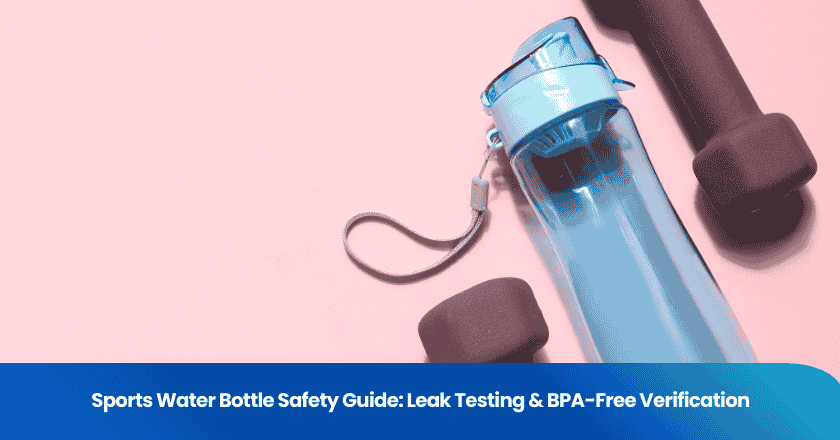
In today's highly competitive business environment, effective vendor relationship management has become an indispensable part of the continuous success of enterprises.
Sourcing services, as a bridge connecting internal needs of enterprises with external market resources, directly affect the cost control, product quality, and market competitiveness of the enterprise in terms of efficiency and effectiveness.
Strong vendor relationships can ensure the stability and flexibility of the supply chain, and can bring additional competitive advantages to the enterprise through shared resources and collaborative innovation.
Understand sourcing services vendors
Definition and Scope
What are sourcing services vendors?
Sourcing services vendors refer to external entities that specialize in providing businesses with the required goods, materials, services, or solutions.
Suppliers may be involved in multiple industries, such as manufacturing, information technology, logistics services, office supplies supply, etc., providing customized products or services according to the specific needs of enterprises.
Sourcing services vendors are an important part of the enterprise supply chain, and are key partners for enterprises to achieve cost control, quality assurance, and market competitive advantage.
Key components of sourcing services vendors
The key components of sourcing services vendors include supplier selection, contract management, order processing, logistics and distribution, quality control, cost control, and after-sales service.
Among them, the selection of sourcing services vendors is the foundation for ensuring the quality and efficiency of procurement services; contract management clarifies the rights and obligations of both parties to ensure the smooth progress of cooperation; order processing and logistics distribution ensure the timely and quantitative arrival of products; quality control guarantees the conformity of products; cost control is one of the core objectives of corporate procurement activities; after-sales service provides additional support for enterprises.
The benefits of effective sourcing services vendors
Cost-effective
Effective procurement can reduce the purchasing costs of enterprises and improve the efficiency of capital utilization. Through centralized procurement, bulk purchases, negotiation for price reductions, long-term cooperation, and other methods, enterprises obtain more favorable prices and higher quality services. Effective procurement management can reduce inventory backlog and lower the operational risks of enterprises.
Acquire professional knowledge and innovation
Collaborating with professional sourcing services vendors, companies can access the latest knowledge, technology, and trends in the industry. These vendors typically have extensive industry experience and expertise, and can provide companies with customized solutions and innovative product designs. By working with them, companies can continuously improve their procurement levels and innovation capabilities, and gain a more advantageous position in market competition.
Establish strong vendor relationships
Establish clear communication
The importance of open dialogue
Open, transparent, and timely communication is the cornerstone for establishing and maintaining strong vendor relationships. It helps to eliminate misunderstandings, enhance mutual trust, and ensure a common understanding of key information in the cooperation. Through open dialogue, companies can timely understand key information such as suppliers' production capacity, quality control, and delivery schedules, making more accurate decisions. Vendors can also better understand the needs and expectations of the company, providing higher quality services.
Tools for effective communication
To achieve effective communication, companies need to adopt various communication tools and methods. These include regular face-to-face meetings, conference calls, emails, online collaboration platforms, etc. These tools can help both parties exchange information in real time, solve problems, and track the progress of cooperation. Companies can also consider establishing a specialized vendor management system to more systematically manage communication records and cooperation details.
Set common expectations
Define roles and responsibilities
When establishing supplier relationships, it is necessary to clarify the roles and responsibilities of both parties, including determining their specific tasks, duties, and obligations in the cooperation. By clarifying roles and responsibilities, both parties can better collaborate, avoid duplication of effort and conflicts. This helps to improve work efficiency and ensure the smooth achievement of cooperation goals.
Align goals and objectives
In addition to clarifying roles and responsibilities, both parties need to jointly set the goals and objectives of the collaboration. This includes determining the specific scope of cooperation, expected outcomes, timelines, and key performance indicators. By aligning goals and objectives, both parties can form a shared vision and strategic direction, working more closely together. This helps both parties better assess the progress and outcomes of the collaboration, adjust cooperation strategies in a timely manner, and achieve greater business value.
Best practices in sourcing services vendors relationship management
Regular performance evaluation
Evaluation Metrics
Regular performance evaluation is a key link to ensure that sourcing services vendors continue to meet the needs of the enterprise. Evaluation indicators should be comprehensive, objective, and quantifiable, accurately reflecting the performance of the vendors. Common evaluation indicators include delivery punctuality, product quality compliance, service response speed, cost control ability, innovation ability, compliance, and cooperation attitude. These indicators can be customized and adjusted according to the specific needs of the enterprise and the characteristics of the vendors.
Feedback mechanism
Establishing an effective feedback mechanism is key to ensuring that performance evaluation results are applied and improved in a timely manner. Enterprises should regularly share evaluation results with suppliers, pointing out their strengths and weaknesses, and proposing specific improvement suggestions. Suppliers are encouraged to offer their own opinions and suggestions, so both parties can jointly improve the effectiveness of cooperation. The feedback mechanism should also include regular reviews and updates to ensure the timeliness and accuracy of evaluation indicators.
Conflict resolution strategies
Identify common issues
In supplier relationship management, conflicts are inevitable. To effectively resolve conflicts, it is first necessary to identify common issues. These issues may include delivery delays, product quality issues, price disputes, poor communication, etc. By identifying these issues, companies can formulate preventive measures and response strategies in advance to reduce the likelihood and impact of conflicts.
Steps to resolve disputes
When conflicts arise, certain steps should be followed to resolve disputes. Firstly, both parties should remain calm and rational, avoiding emotional behavior. Secondly, clarify the specific issues and background of the dispute to better understand and resolve it. Then, both parties can jointly explore solutions and seek a win-win outcome. If consensus cannot be reached, consider introducing a third party for mediation or arbitration. Finally, regardless of the outcome, both parties should maintain an open and cooperative attitude to facilitate future cooperation.
By following these best practices, companies can establish more stable and efficient supplier relationships, ensuring the stability and competitiveness of the supply chain, and laying a solid foundation for the long-term development of the enterprise.
Practical tips to success
Establish long-term partnerships with sourcing services vendors
Promote trust and cooperation with sourcing services vendors
The foundation of establishing a partnership is trust and cooperation. To promote this, companies should maintain open communication and share information in a timely manner, including market trends, changes in business needs, and future development plans. Adhering to commitments and contract terms, and demonstrating integrity and reliability, are key to winning the trust of suppliers. Jointly solving problems and facing challenges can deepen the tacit understanding between both parties and promote deeper cooperation.
Incentives for ongoing cooperation
To motivate suppliers to continuously provide quality services, companies can adopt a series of incentive measures. These include offering long-term contracts, preferential payment terms, joint market development opportunities, and rewarding excellent performance. Through these measures, companies can express their recognition of the value of suppliers, and enhance the willingness to cooperate and loyalty of suppliers.
Leverage the current popular technologies
Supplier management tools
Using advanced vendor management tools, such as supplier relationship management systems (SRM), electronic procurement platforms, etc., can improve the efficiency of supplier relationship management. These tools can help companies centralize the management of supplier information, contracts, orders, and performance evaluations, and achieve automation and standardization of processes.
Benefits of digital solutions
Digital solutions have improved the convenience of management and brought many benefits. Digital solutions can reduce human error, improve the accuracy and reliability of data; accelerate decision-making speed, enabling enterprises to respond to market changes more quickly; enhance the transparency and traceability of the supply chain, allowing enterprises to better control risks and costs; through data analysis, enterprises can gain insight into supplier performance and market trends, providing strong support for future cooperation and strategic planning.
Establishing long-term partnerships and leveraging technology are practical tips for successfully managing supplier relationships. By promoting trust and cooperation, adopting incentives, and using advanced supplier management tools and digital solutions, companies can build a solid and efficient supply chain system, laying a solid foundation for the continuous development of the business.
The key to successful supplier relationship management lies in understanding the essence of sourcing services, establishing a solid relationship based on clear communication and shared expectations, following best practices for performance evaluation and conflict resolution, and applying long-term cooperation strategies and advanced technical means.
Cultivating strong vendor partnerships can enhance the operational efficiency and innovation capabilities of enterprises, and is an important cornerstone for achieving sustainable development.
We encourage companies to actively adopt and implement these techniques, continuously optimize the supplier relationship management process, in order to stand out in the fierce market competition and create a win-win situation.
Grow your business with TradeAider Service
Click the button below to directly enter the TradeAider Service System. The simple steps from booking and payment to receiving reports are easy to operate.



